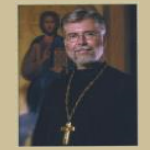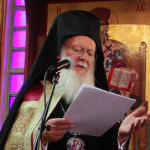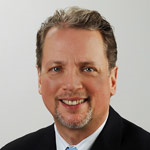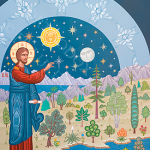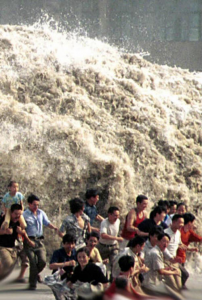
Deprecated: trim(): Passing null to parameter #1 ($string) of type string is deprecated in /home/aoiusa/public_html/wp-content/plugins/sexybookmarks/public.php on line 388
Deprecated: trim(): Passing null to parameter #1 ($string) of type string is deprecated in /home/aoiusa/public_html/wp-content/plugins/sexybookmarks/public.php on line 394
Deprecated: trim(): Passing null to parameter #1 ($string) of type string is deprecated in /home/aoiusa/public_html/wp-content/plugins/sexybookmarks/public.php on line 400
Economist Andrew Morris on Patriarch Bartholomew’s ideas on sustainable energy: “[H]e’s asking the wrong questions.”

Source: Acton Institute Power Blog | HT: Koinonia
For PowerBlog readers, we’re posting the video from Andrew Morriss’ April 26 Acton Lecture Series talk in Grand Rapids, Mich., on “The False Promise of Green Energy.” Here’s the lecture description: “Green energy advocates claim that transforming America to an economy based on wind, solar, and biofuels will produce jobs for Americans, benefits for the environment, and restore American industry. Prof. Andrew Morriss, co-author of The False Promise of Green Energy (Cato, 2011), shows that these claims are based on unrealistic assumptions, poorly thought out models, and bad data. Rather than leading us to an eco-utopia, he argues that current green energy programs are crony capitalism that impoverishes American consumers and destroys American jobs.”
Morriss, an Orthodox Christian, begins with a quote from Ecumenical Patriarch Bartholomew I of Constantinople, the Istanbul, Turkey-based hierarch. Bartholomew said this in response to the March 2011 tsunami in Japan and the Fukushima Daiichi nuclear disaster that followed:
Our Creators granted us the gifts of the sun, wind, water and ocean, all of which may safely and sufficiently provide energy. Ecologically-friendly science and technology has discovered ways and means of producing sustainable forms of energy for our ecosystem. Therefore, we ask: Why do we persist in adopting such dangerous sources of energy?
“The Ecumenical Patriarch and I don’t see eye to eye on this,” Morriss said. “I think he’s asking the wrong questions.”
Also see the PowerBlog post “Green Patriarch: No Nukes.”
In his book, Morriss and his co-authors warn that “the concrete results of following [green energy] policies will be a decline in living standards around the globe, including for the world’s poorest; changes in lifestyle that Americans do not want; and a weakening of the technological progress that market forces have delivered, preventing us from finding real solutions to the real problems we face.” Many of those lifestyle changes will come from suddenly spending far more on energy than we’d like. Green technologies mean diverting production from cheap sources, such as coal and oil, to more expensive, highly subsidized ones, like wind and solar. These price spikes won’t be limited to our electricity bills either, the authors argue. “Anything that increases the price of energy will also increase the price of goods that use energy indirectly.”
The better solution to improving America’s energy economy, the book shows, is to let the market work by putting power in the hands of consumers. But “many environmental pressure groups don’t want to leave conservation to individuals, preferring government mandates to change energy use.” In other words, green-job proponents know they’re pushing a bad product. Rather than allow the market to expose the bad economics of green energy, they’d use the power of government to force expensive and unnecessary transformation.
Morriss is also an editor of the forthcoming Silent Spring at 50: The False Crises of Rachel Carson (Cato, September 2012) with Roger Meiners and Pierre Desroches. The blurb for the Carson book notes that she got a lot wrong:
Widely credited with launching the modern environmental movement when published 50 years ago, Rachel Carson’s Silent Spring had a profound impact on our society. As an iconic work, the book has often been shielded from critical inquiry, but this landmark anniversary provides an excellent opportunity to reassess its legacy and influence. In Silent Spring at 50: The False Crises of Rachel Carson a team of national experts explores the book’s historical context, the science it was built on, and the policy consequences of its core ideas. The conclusion makes it abundantly clear that the legacy of Silent Spring is highly problematic. While the book provided some clear benefits, a number of Carson’s major arguments rested on what can only be described as deliberate ignorance. Despite her reputation as a careful writer widely praised for building her arguments on science and facts, Carson’s best-seller contained significant errors and sins of omission. Much of what was presented as certainty then was slanted, and today we know much of it is simply wrong.
Morriss is the D. Paul Jones, Jr. & Charlene Angelich Jones Chairholder of Law at the University of Alabama School of Law. He is the author or coauthor of more than 60 book chapters, scholarly articles, and books. He is affiliated with a number of think tanks doing public policy work, including the Property & Environment Research Center in Bozeman, Montana, the Regulatory Studies Center at George Washington University, the Institute for Energy Research, and the Mercatus Center at George Mason University. In addition, he is a Research Fellow at the New York University Center for Labor and Employment Law. He is chair of the editorial board of the Cayman Financial Review. His scholarship focuses on regulatory issues involving environmental, energy, and offshore financial centers. Over the past ten years he has regularly taught and lectured in China, Greece, Guatemala, Hong Kong, and Nepal.
Morriss earned an A.B. from Princeton University and a J.D., as well as an M.A. in Public Affairs, from the University of Texas at Austin. He received a Ph.D. in economics from the Massachusetts Institute of Technology. After law school, Morriss clerked for U.S. District Judge Barefoot Sanders in the Northern District of Texas and worked for two years at Texas Rural Legal Aid in Hereford and Plainview, Texas.
He was formerly the H. Ross and Helen Workman Professor of Law & Professor of Business at the University of Illinois College of Law and the Galen J. Roush Profesor of Business Law & Regulation at Case Western Reserve University School of Law.
